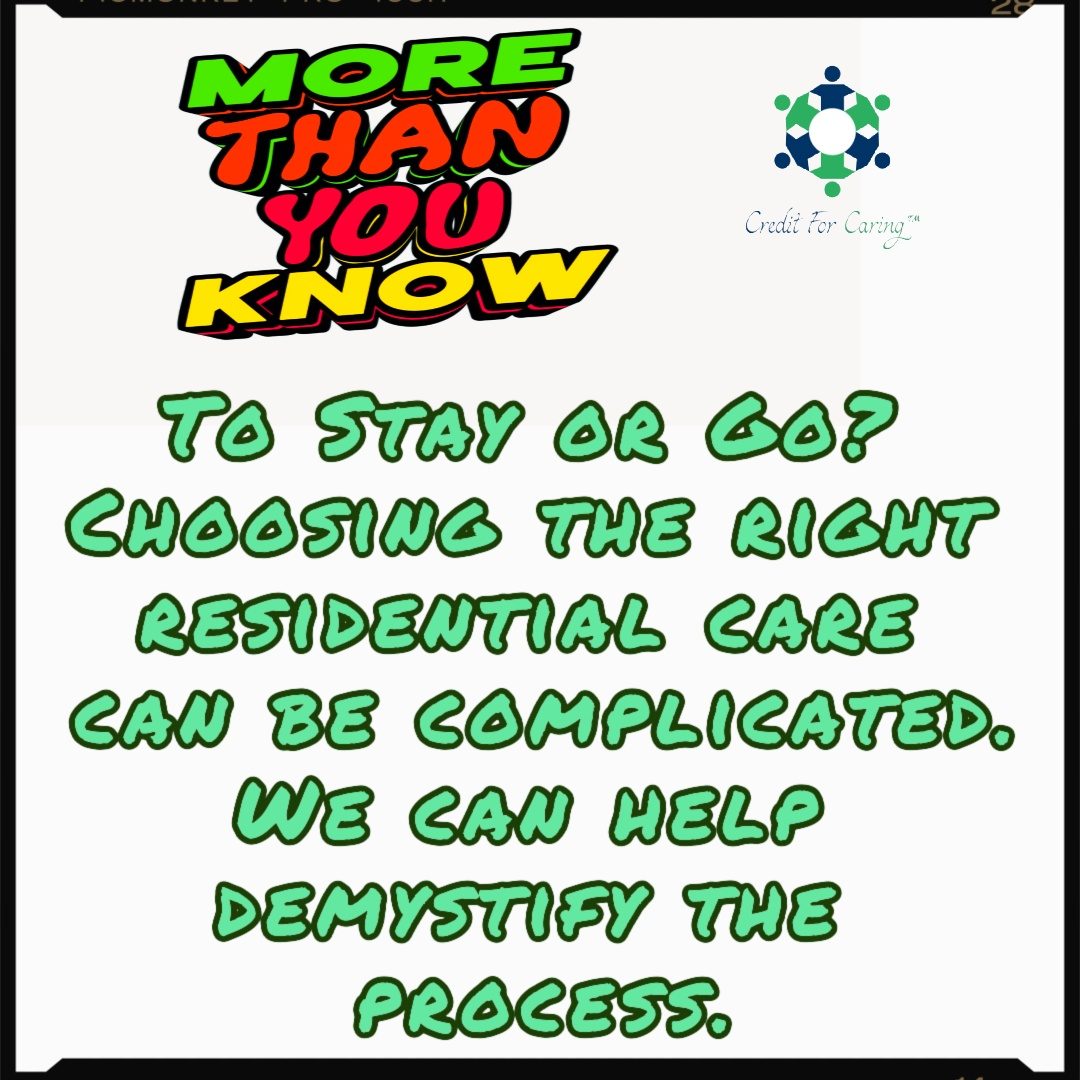How to Evaluate a Nursing Home
Assisted living, nursing home, memory care, continuous care residential communities are residential care options
How to Evaluate a Nursing Home
Assisted living, nursing home, memory care, continuous care residential communities are residential care options
What Option is Right for You?

The Centers for Medicare and Medicaid have created a 5-star system to help consumers compare nursing homes.
It’s human nature to ignore unpleasant tasks until the last minute. Like finding the best nursing home for a short stay or to remain under nursing care for the remainder of life on earth. Few of us, outside the healthcare industry, would spend a leisurely Sunday afternoon visiting prospective nursing homes. In fact, most of us have no idea what to look for in a nursing home.
$6K+
Cost of a semi-private nursing home room
33
Average number of beds in an Assisted Living Facility
$53K+
Annual cost of homemaker services
Step 1: Assessing Specific Care Needs
Begin by thoroughly assessing the specific care needs of your loved one. Consider their current health condition, mobility, and cognitive abilities. Identify whether they require assistance with activities of daily living (ADLs) such as bathing, dressing, and grooming. Additionally, evaluate any medical conditions or memory-related issues that may necessitate specialized care, such as in the case of memory care. This initial step helps to determine the level of care required and narrows down the type of residential care facility that would be most suitable.

Step 2: Touring Facilities and Evaluating Amenities
Once you have a clear understanding of your loved one’s care needs, visit potential residential care homes to assess their facilities and amenities. Schedule tours with each facility to observe the living spaces, common areas, and outdoor spaces. Take note of the cleanliness, safety measures, and overall atmosphere. Inquire about the range of services provided, such as medication management, therapy options, and social activities. Evaluate the quality of meals and inquire about any special dietary accommodations. Pay attention to the level of personalization and flexibility in care plans to ensure they can cater to your loved one’s unique requirements.


Step 3: Interacting with Staff and Gauging Personalized Care
Engage with the staff at each residential care home to gauge their level of expertise, compassion, and dedication to personalized care. Inquire about staff-to-resident ratios, staff training programs, and their approach to handling emergencies. Assess the communication style of the staff and their willingness to involve family members in the care planning process. Request information on how the facility tailors care plans to meet individual needs, particularly for residents with specific health conditions or memory-related challenges. A strong and supportive staff can significantly contribute to the overall well-being of your loved one.

Step 4: Checking Reviews and Gathering Feedback
Research online reviews and gather feedback from current residents and their families. Look for testimonials that highlight the positive aspects of the residential care home, as well as any concerns or issues that have been raised. Check for licensing and accreditation to ensure the facility meets regulatory standards. Reach out to healthcare professionals or local agencies for additional insights. By collecting diverse perspectives, you can gain a more comprehensive understanding of the residential care home’s reputation and the experiences of those who have entrusted their loved ones to its care.

Notes from the Author

Know Your Rights and Protect Vulnerable People
The Nursing Home Reform Law
The Nursing Home Reform Law, a federal statute, mandates that nursing homes provide residents with the necessary care to reach their highest practicable level of functioning. This law applies to all nursing homes certified to accept payment from Medicare or Medicaid, which includes nearly all nursing homes. The regulations governing nursing homes’ responsibilities are outlined in Title 42 of the Code of Federal Regulations, and guidance for interpreting these regulations is provided in the Surveyor’s Guidelines of the Centers for Medicare & Medicaid Services (CMS).
Where to Seek Assistance
Residents and their families may require legal or advocacy assistance to address nursing home problems effectively. The long-term care ombudsman program, available in every state, offers free advocacy services for nursing home residents. Each state also has an inspection agency, often part of the state’s Health Department, that monitors nursing homes’ compliance with federal law. The National Consumer Voice for Quality Long-Term Care and the federal government’s Care Compare website are additional resources for information and support.
Recommendation: Speak Up!
Many nursing homes violate the Nursing Home Reform Law due to consumers’ lack of familiarity with their rights, shyness, and fear of retaliation. Residents and families must recognize their right to high-quality care and advocate for it. Federal law prohibits nursing homes from retaliating against individuals who file complaints. Being assertive (but polite) in requesting individualized care can lead to better outcomes for residents.
Medicare and Medicaid are government programs that provide health care coverage for eligible individuals. Medicare is based on payroll deductions and is available to individuals aged 65 or older or those with disabilities. Medicaid, on the other hand, is a safety-net program for low-income individuals and families. Medicare Advantage is an alternative way to receive Medicare benefits through managed care plans.
Economic State of Skilled Nursing Facility (SNF) Industry
Payment for Nursing Home Care
Medicare and Medicaid differ in how they pay for nursing home care. Medicaid can cover long-term care indefinitely, while Medicare only covers up to 100 days per benefit period, with limitations on the types of care provided. Medicare Advantage plans may offer additional benefits but also have restrictions on providers and services.
Conclusion
Nursing home problems are widespread and can be addressed through advocacy and awareness of residents’ rights. Federal law mandates that nursing homes provide high-quality care, and individuals should not hesitate to speak up and seek assistance when necessary.
Monica Stynchula – CEO / REUNIONCare, Inc.




